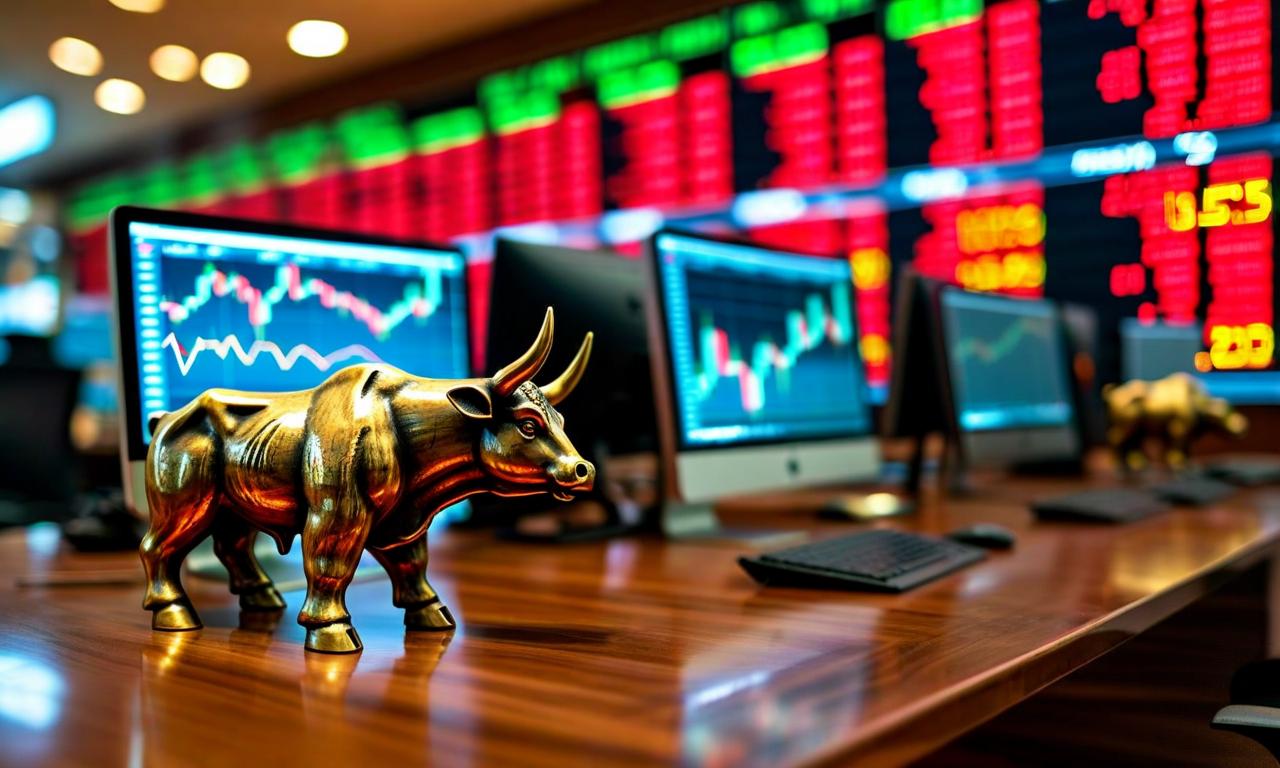Indian Stock Markets Hit Highest Levels Since July on IT and Pharma Gains Amid Insider Selling Trend
Indian benchmark indices Nifty 50 and Sensex closed at their highest levels since early July, gaining 93 and 320 points respectively, following a US Federal Reserve rate cut. IT and pharma stocks led the rally. However, this comes against a backdrop of substantial insider selling in the Indian stock market. Between January 1 and September 16, insiders sold shares worth ₹25,500 crore while purchasing only ₹3,860 crore, resulting in a net selling of ₹21,600 crore. Major sellers included Bajaj Finserv, Authum Investment & Infrastructure, and JB Chemicals Pharma, while top buyers were Jindal Steel Power and Indus Towers Limited.

*this image is generated using AI for illustrative purposes only.
Indian benchmark indices closed at their highest levels since early July following a 25-basis-point US Federal Reserve rate cut. The Nifty 50 gained 93 points to 25,424.00, while the Sensex rose 320 points to 83,014.00. IT and pharma stocks led the rally, with the Nifty IT index up 1% and pharma companies like Sun Pharmaceutical rising 2% and Biocon jumping 4% on drug approval news. Poonawalla Fincorp surged 13% after promoter capital infusion.
However, this market rally comes against a backdrop of significant insider selling activity in the Indian stock market. Between January 1 and September 16, promoters and insiders sold shares worth ₹25,500.00 crore while purchasing only ₹3,860.00 crore, resulting in a net selling of ₹21,600.00 crore.
Top Sellers and Buyers
Major Sellers
| Company | Amount (₹ in crore) |
|---|---|
| Bajaj Finserv | 5,502.00 |
| Authum Investment & Infrastructure | 2,473.00 |
| JB Chemicals Pharma | 1,628.00 |
| Apollo Hospitals | 1,479.00 |
Top Buyers
| Company | Amount (₹ in crore) |
|---|---|
| Jindal Steel Power | 997.00 |
| Indus Towers Limited | 708.00 |
| Jindal Stainless | 352.00 |
Market Implications
The substantial net selling by insiders, amounting to ₹21,600.00 crore, may be interpreted as a sign of caution amid market volatility and global uncertainties. This trend could be attributed to various factors, including profit-taking, portfolio rebalancing, or concerns about future market conditions.
Current Market Performance
Despite the insider selling trend, the market showed strength with IT and pharma sectors leading gains. However, some stocks declined:
- Page Industries fell over 2% after HSBC maintained a reduce rating
- Cohance Lifesciences dropped 6% following US FDA observations
The market breadth remained neutral with an advance-decline ratio of 1:1.
As the Indian stock market navigates through these insider transactions and global economic challenges, investors will likely keep a close eye on how these trends develop and their potential impact on market sentiment and valuations.



































